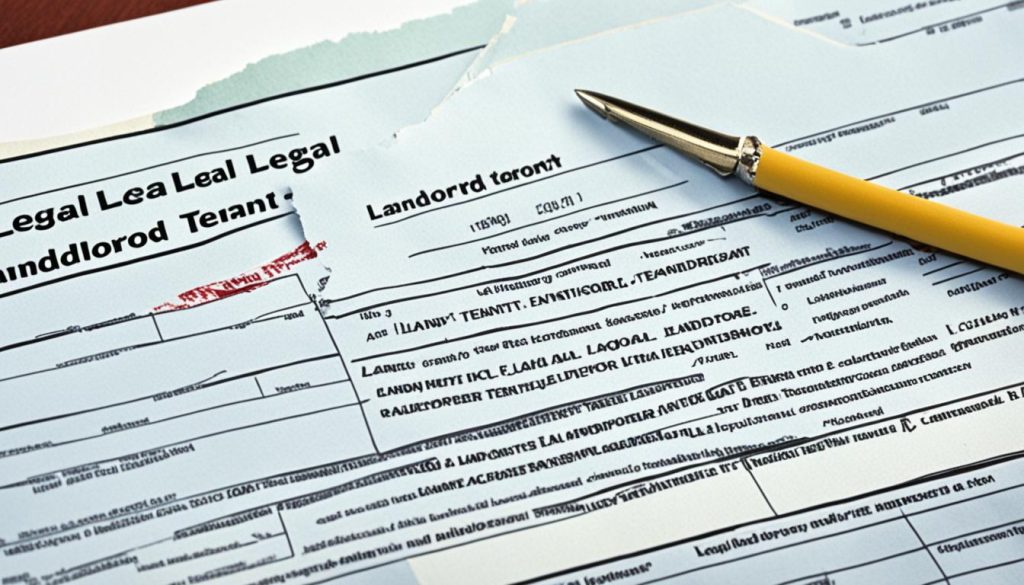Do you know the critical legislation that governs the relationship between landlords and tenants in the UK? Introducing the Landlord and Tenant Covenants Act 1995, a pivotal piece of law that has shaped the modern landscape of property leases. But how exactly has this Act influenced the rights and obligations of both parties? Delve into this comprehensive guide to uncover the answers and gain invaluable insights.
Introduction to the Landlord and Tenant Covenants Act 1995
Historically, the landlord and tenant law in the UK was fraught with complexities and perceived injustices. One of the main issues was the concept of “privity of contract” and “privity of estate”, which essentially meant that original tenants were indefinitely liable for the covenants of a lease, even after it had been assigned to a new tenant. This led to numerous cases where original tenants were held liable for breaches of covenant committed by subsequent tenants, often many years after the original lease was assigned. In response to these issues, the Landlord and Tenant Covenants Act 1995 was enacted. The primary objective of the Act was to abolish the rules of privity concerning leasehold covenants and to establish a fairer and more equitable framework for landlord and tenant relationships.

| Key Reforms Introduced by the Landlord and Tenant Covenants Act 1995 | Impact on Landlords and Tenants |
|---|---|
| Abolition of Privity of Contract and Estate | Provided greater fairness and certainty for tenants, as they no longer have to worry about being held liable for breaches of covenant committed by subsequent tenants. |
| Introduction of Authorised Guarantee Agreements (AGAs) | Gave landlords a greater sense of security when dealing with lease assignments, as they can require outgoing tenants to guarantee the performance of the covenants by the incoming tenant. |
| Landlords’ Obligations | Ensured that landlords have adequate responsibilities and that tenants have certain rights that are protected by the Act. |
Abolition of Privity of Contract and Estate
The 1995 Act abolished the concept of “privity of contract” and “privity of estate”. This means that an original tenant is no longer indefinitely liable for the covenants of a lease after it has been assigned. Instead, their liability ends upon the lawful assignment of the lease. This has provided greater fairness and certainty for tenants, as they no longer have to worry about being held liable for breaches of covenant committed by subsequent tenants.
| Privity of Contract | Privity of Estate |
|---|---|
| Refers to the direct contractual relationship between the original parties to a lease agreement. | Relates to the connection between the landlord and tenant based on their respective estates in the property. |
| Under the old rules, the original tenant remained liable for the lease covenants even after the property was assigned to a new tenant. | Similarly, the old rules held the original tenant responsible for the actions of any subsequent tenants. |
| The 1995 Act abolished this concept, providing relief for original tenants who are no longer indefinitely liable. | The 1995 Act also abolished the principle of privity of estate, further enhancing fairness and certainty for tenants. |
The abolition of these archaic principles has been a significant achievement of the 1995 Act, offering greater protection and peace of mind for tenants navigating the complexities of lease assignments.

Authorised Guarantee Agreements
The Landlord and Tenant Covenants Act 1995 introduced the concept of “Authorised Guarantee Agreements” (AGAs). Under an AGA, an outgoing tenant can agree to guarantee the performance of the covenants by the incoming tenant. This provides a level of protection for landlords, ensuring they have a recourse in the event of a breach of covenant by the new tenant.
The introduction of AGAs has given landlords a greater sense of security when dealing with lease assignments. By entering into an AGA, the outgoing tenant effectively stands as a guarantor for the incoming tenant’s adherence to the terms of the lease. This offers landlords an additional layer of assurance, as they can hold the outgoing tenant accountable should the new tenant fail to uphold their responsibilities.
Moreover, AGAs have introduced new obligations for outgoing tenants. Before a lease can be assigned, the outgoing tenant must carefully consider the financial standing and creditworthiness of the incoming tenant. If the landlord deems the new tenant’s covenant strength insufficient, the outgoing tenant may be required to enter into an AGA, legally binding them to guarantee the performance of the lease covenants.
The AGA mechanism has become a crucial component of the modern landlord and tenant landscape, balancing the interests of both parties. Landlords gain a sense of security, while outgoing tenants must thoughtfully navigate the assignment process to avoid potential future liabilities.

Practical Implications and Case Studies
The Landlord and Tenant Covenants Act 1995 has had significant practical implications for both landlords and tenants. For landlords, the Act has provided a level of protection in the form of Authorised Guarantee Agreements (AGAs), allowing them to have a form of recourse in the event of a breach of covenant by the new tenant. For tenants, the Act has provided much-needed relief from indefinite liability, as they are now released from future liability once a lease is lawfully assigned. However, the Act has also introduced new complexities, such as the concept of AGAs, which has created additional obligations for outgoing tenants.
To illustrate the practical implications, consider the case of a tenant who wishes to assign a lease. Under the old rules of privity, the tenant would remain liable for the covenants of the lease even after the assignment. However, under the 1995 Act, the tenant’s liability ends upon the lawful assignment of the lease. If the landlord requires additional protection, an AGA can be entered into, where the outgoing tenant guarantees the performance of the covenants by the incoming tenant.
| Scenario | Pre-1995 Act | Post-1995 Act |
|---|---|---|
| Lease Assignment | Tenant remains liable for covenants after assignment | Tenant’s liability ends upon lawful assignment, unless AGA is in place |
| Breach of Covenant | Landlord’s recourse limited to original tenant | Landlord can pursue new tenant or use AGA to recoup losses |
| Outgoing Tenant Obligations | No further obligations after assignment | Outgoing tenant may need to enter AGA to guarantee new tenant’s performance |

Conclusion
The Landlord and Tenant Covenants Act 1995 has undoubtedly left a lasting impact on the landscape of landlord and tenant law in the United Kingdom. By abolishing the archaic concepts of privity of contract and privity of estate, the Act has provided greater fairness and certainty for both parties involved in a lease agreement. The introduction of Authorised Guarantee Agreements (AGAs) has given landlords a valuable tool to safeguard their interests, while also ensuring that outgoing tenants no longer face indefinite liability.
While the Act has introduced additional complexities, such as the nuances surrounding AGAs, the overall consensus is that it has struck a more equitable balance between the rights and obligations of landlords and tenants. The Act’s provisions have empowered tenants, granting them relief from the burden of perpetual liability, while also ensuring that landlords maintain adequate responsibilities and that tenants’ rights are duly protected.
As the UK’s property landscape continues to evolve, the Landlord and Tenant Covenants Act 1995 remains a crucial piece of legislation that shapes the dynamic between landlords and tenants. Its impact is likely to be felt for years to come, as both parties navigate the legal landscape and adapt to the new realities introduced by this landmark Act.
FAQ
What were the key issues the 1995 Act aimed to address?
Historically, the landlord and tenant law in the UK was fraught with complexities and perceived injustices, particularly the concept of “privity of contract” and “privity of estate”. This meant that original tenants were indefinitely liable for the covenants of a lease, even after it had been assigned to a new tenant.
How did the 1995 Act address the issue of privity?
The 1995 Act abolished the concept of “privity of contract” and “privity of estate”. This means that an original tenant is no longer indefinitely liable for the covenants of a lease after it has been assigned. Instead, their liability ends upon the lawful assignment of the lease.
What is an Authorised Guarantee Agreement (AGA)?
The 1995 Act introduced the concept of “Authorised Guarantee Agreements” (AGAs). Under an AGA, an outgoing tenant can agree to guarantee the performance of the covenants by the incoming tenant, providing a level of protection for landlords.






